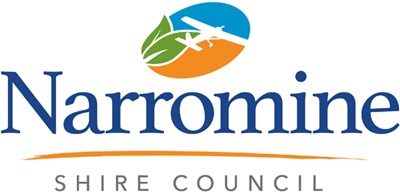Annual Pet Permits
The NSW Government has introduced annual permits for non-desexed cats and restricted and dangerous dogs as part of its commitment to promoting responsible pet ownership and improving animal welfare standards from 1 July 2020.
Owners of cats not desexed by four months of age are required to pay an $99 annual permit in addition to their one-off lifetime pet registration fee.
The new program will create a stronger incentive to desex cats, which in turn will improve their health and wellbeing, including reducing the risk of some cancers.
Improving desexing rates will also ease the burden on pounds and shelters, reduce euthanasia rates, and help to address concerns about feral, stray and roaming cats and their effect on wildlife.
Exemptions are in place for those kept for breeding purposes by members of recognised breeding bodies, and cats which cannot be de-sexed for medical reasons.
From 1 July 2020, Owners of dogs of a restricted breed or formally declared to be dangerous are required to pay a $236 annual permit in addition to their one-off lifetime pet registration fee.
This will serve as a further disincentive to owning high-risk dogs and encourage owners to better manage the behaviour of their animal.
Pet owners are able to pay for annual permits using the NSW Pet Registry website or through their local council.
Anyone registering a cat on the NSW Pet Registry will be informed that they must pay for an $80 annual permit if their animal is not desexed by four months of age.
Annual permit fees will go directly to the Companion Animals Fund which pays for companion animal management by local councils including pounds/shelters, ranger services, dog recreation areas, and education and awareness programs.
The fund is also used to operate the NSW Pet Registry and carry out responsible pet ownership initiatives.
If you require any further information or assistance, please contact the NSW Pet Registry at pets@olg.nsw.gov.au and 1300 134 460.
Frequently Asked Questions
What are the new annual permits about?
From 1 July 2020 owners of cats not desexed by four months of age will be required to pay a $99 annual permit in addition to their one-off lifetime pet registration fee. Owners of dogs of a restricted breed or formally declared to be dangerous will also be required to pay a $236 annual permit in addition to their one-off lifetime pet registration fee.
Why are annual permits being introduced?
Annual permits for non-desexed cats will create a stronger incentive to desex cats, which will in turn improve their health and wellbeing, including reducing the risk of some cancers.
Improving de-sexing rates will also lower demand on pounds and shelters, reduce euthanasia rates, and help to address concerns about feral, stray, and roaming cats and their effect on wildlife.
Annual permits for dangerous and restricted dogs will improve community safety by helping to reduce ownership of high-risk dogs and encouraging owners to better manage the behaviour of their animal.
How can I avoid the annual permit?
✓ desex your cat by four months of age, or request an exemption from your vet *
✓ don’t own a restricted dog
✓ manage your dog’s behaviour to ensure that it’s not declared dangerous
✓ if you are a breeder, join a recognised cat breeding body
* Cats that cannot be desexed, either temporarily or permanently, are exempt from paying an annual permit. A certificate from your vet is required to qualify for this exemption.
What breeds are restricted?
Restricted dog breeds are the pit bull terrier, American pit bull terrier, Japanese tosa, Argentinian fighting dog, Brazilian fighting dog, and canary mastiff. A dog can also be declared to be one of, or a cross-breed of, one of these restricted breeds.
What is a dangerous dog?
Dogs of any breed can be formally declared dangerous by a council or court if the dog, without provocation has attacked or killed a person or animal, repeatedly threatened to attack or repeatedly chased a person or animal, or is kept or used for hunting.
How will pet owners pay for the annual permits?
Pet owners are able to pay for annual permits using the NSW Pet Registry website, or through their local council. Anyone registering a cat on the NSW Pet Registry will be informed that they must pay for an $99 annual permit if their animal is not desexed by four months of age.
Where will the revenue raised from the annual permits go?
Annual permit fees will go directly to the Companion Animals Fund which pays for companion animal management by local councils including pounds/shelters, ranger services, dog recreation areas, and education and awareness programs. The fund is also used to operate the NSW Pet Registry and carry out responsible pet ownership initiatives.
What is the penalty if pet owners don’t have an annual permit and get caught?
Pet owners who fail to obtain an annual permit risk an on-the-spot fine of $700 for restricted or dangerous dogs and $400 for non-desexed cats.
If taken to court, maximum penalties of $6,600 for restricted or dangerous dogs and $5,500 for non-desexed cats may apply.
Local councils will have primary responsibility for enforcing the new requirement consistent with other companion animal management practices.
